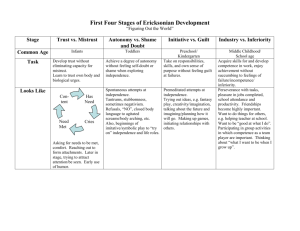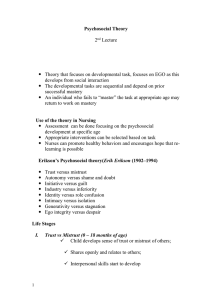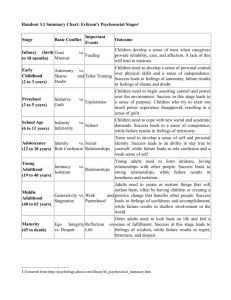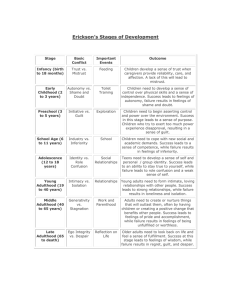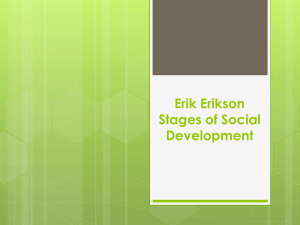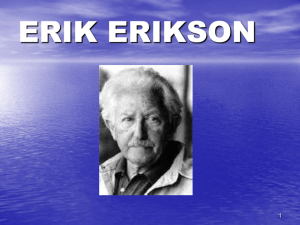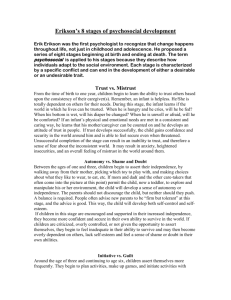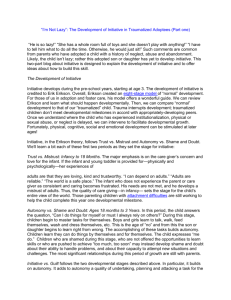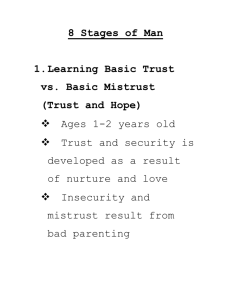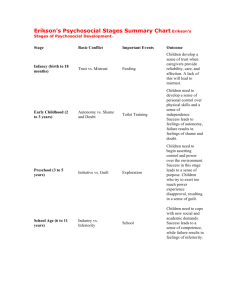Psychosocial Development - Integrity Health Services
advertisement
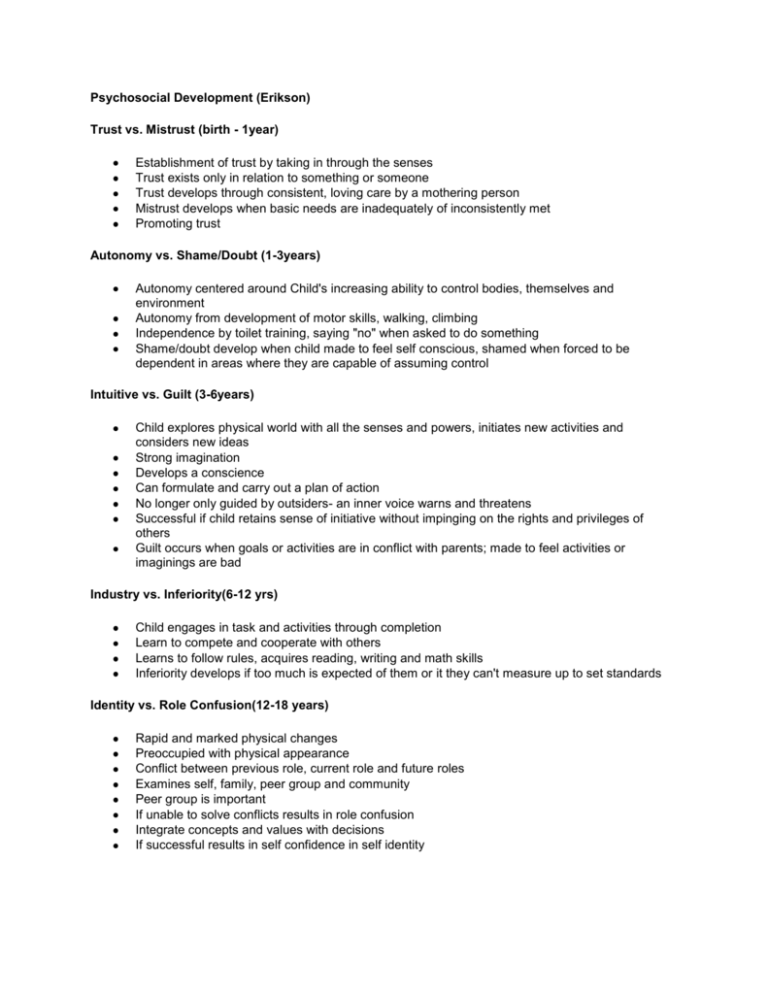
Psychosocial Development (Erikson) Trust vs. Mistrust (birth - 1year) Establishment of trust by taking in through the senses Trust exists only in relation to something or someone Trust develops through consistent, loving care by a mothering person Mistrust develops when basic needs are inadequately of inconsistently met Promoting trust Autonomy vs. Shame/Doubt (1-3years) Autonomy centered around Child's increasing ability to control bodies, themselves and environment Autonomy from development of motor skills, walking, climbing Independence by toilet training, saying "no" when asked to do something Shame/doubt develop when child made to feel self conscious, shamed when forced to be dependent in areas where they are capable of assuming control Intuitive vs. Guilt (3-6years) Child explores physical world with all the senses and powers, initiates new activities and considers new ideas Strong imagination Develops a conscience Can formulate and carry out a plan of action No longer only guided by outsiders- an inner voice warns and threatens Successful if child retains sense of initiative without impinging on the rights and privileges of others Guilt occurs when goals or activities are in conflict with parents; made to feel activities or imaginings are bad Industry vs. Inferiority(6-12 yrs) Child engages in task and activities through completion Learn to compete and cooperate with others Learns to follow rules, acquires reading, writing and math skills Inferiority develops if too much is expected of them or it they can't measure up to set standards Identity vs. Role Confusion(12-18 years) Rapid and marked physical changes Preoccupied with physical appearance Conflict between previous role, current role and future roles Examines self, family, peer group and community Peer group is important If unable to solve conflicts results in role confusion Integrate concepts and values with decisions If successful results in self confidence in self identity

